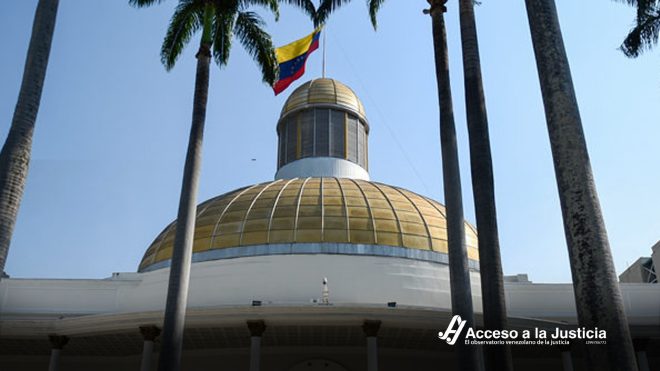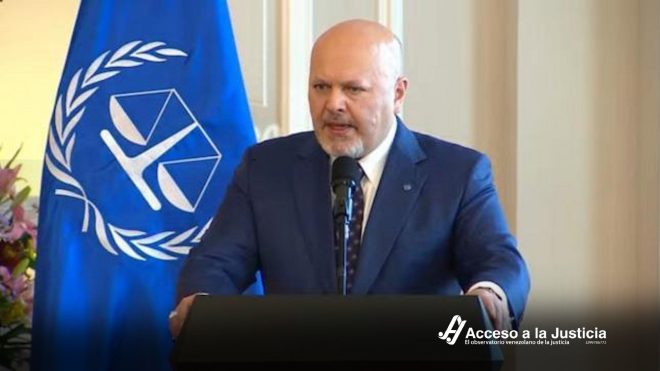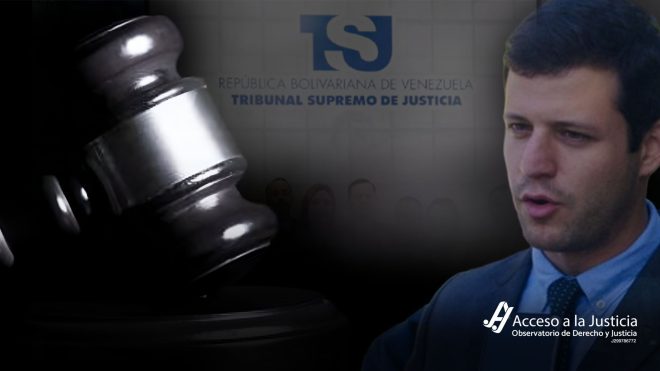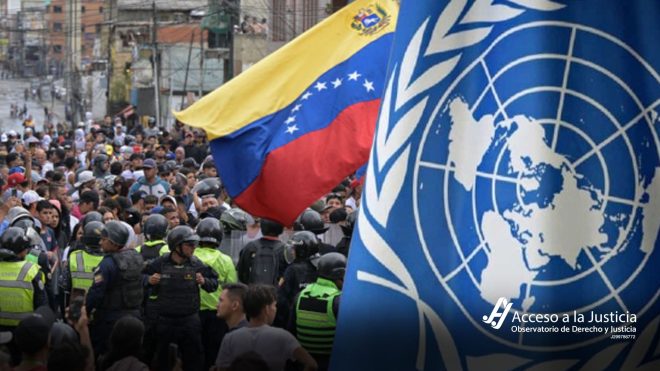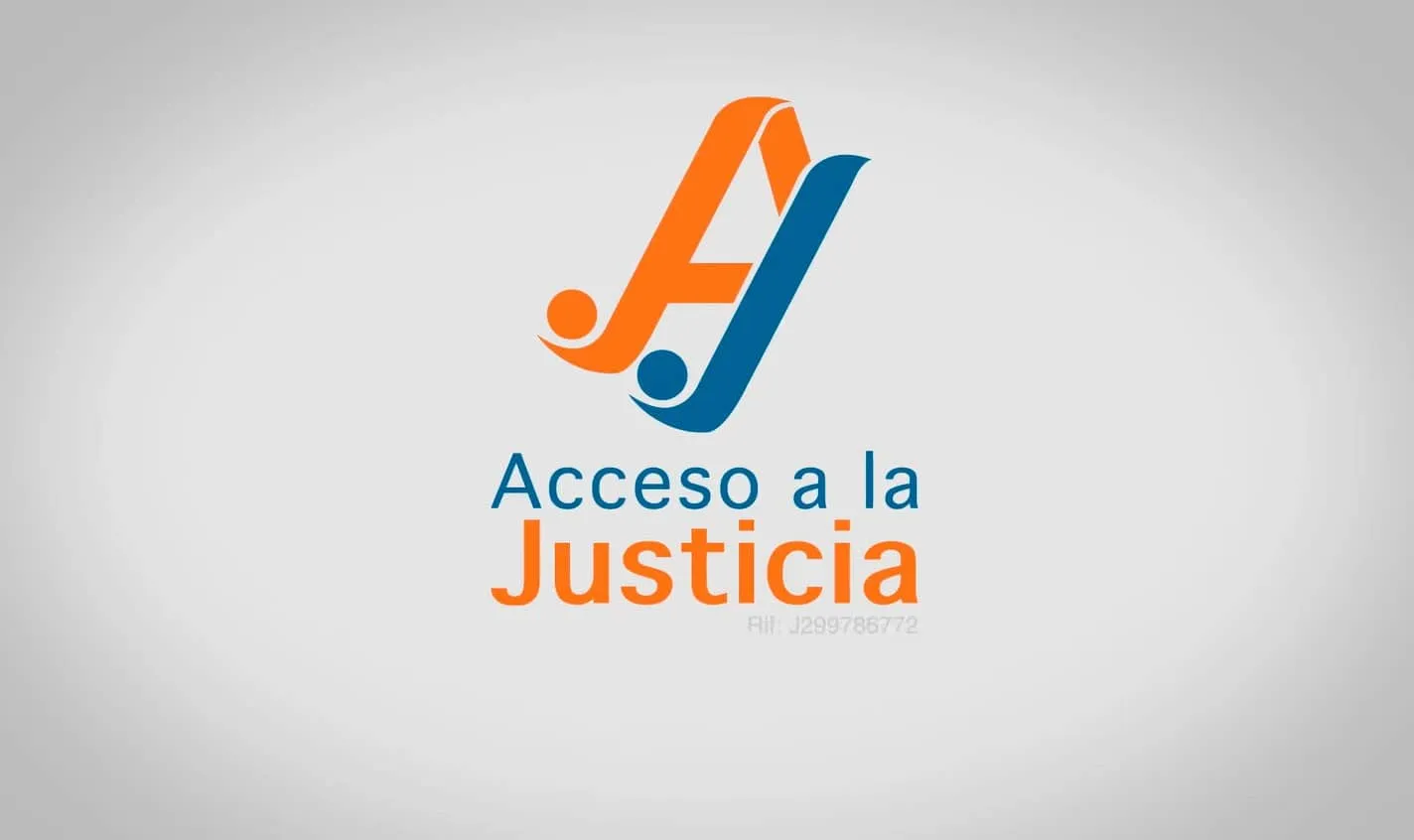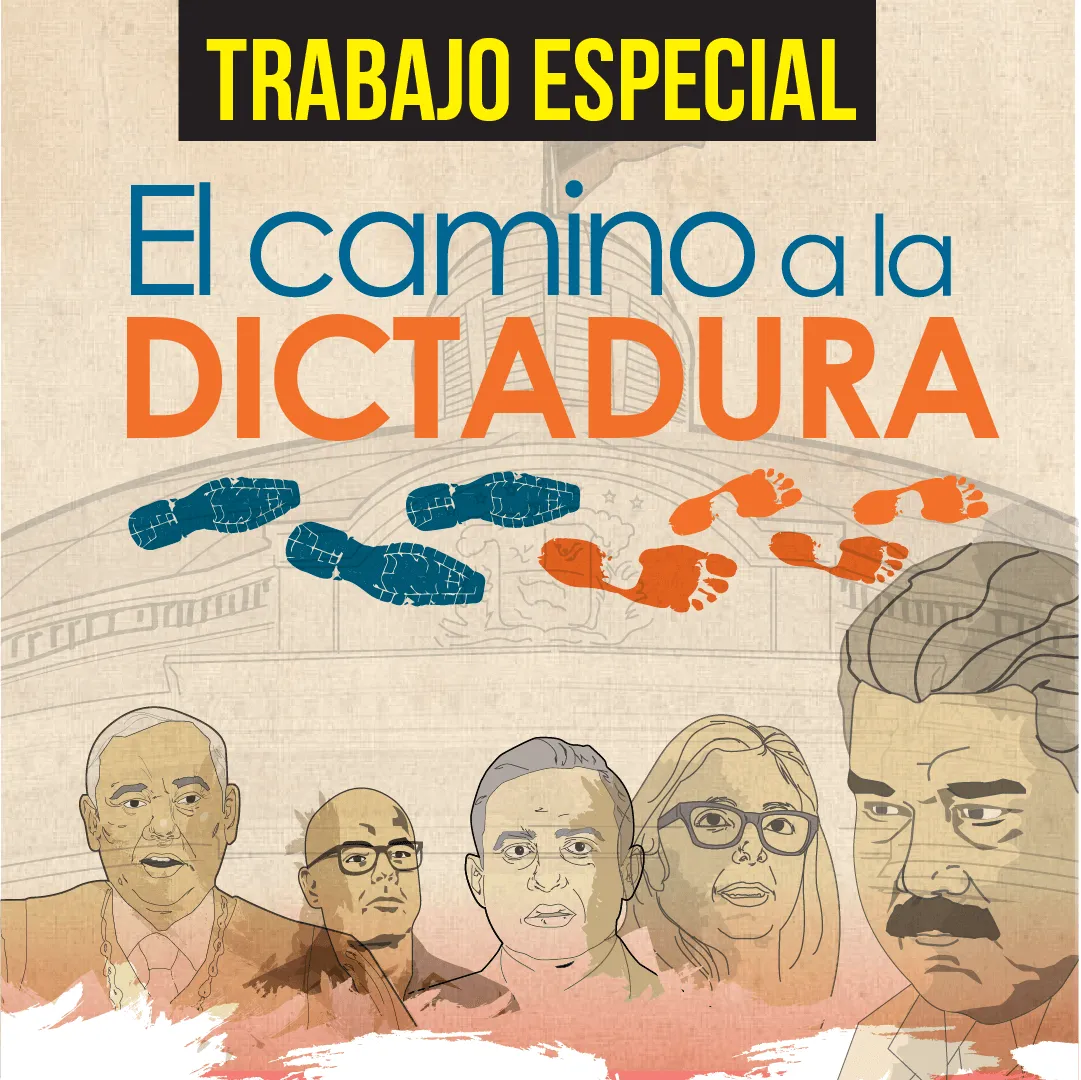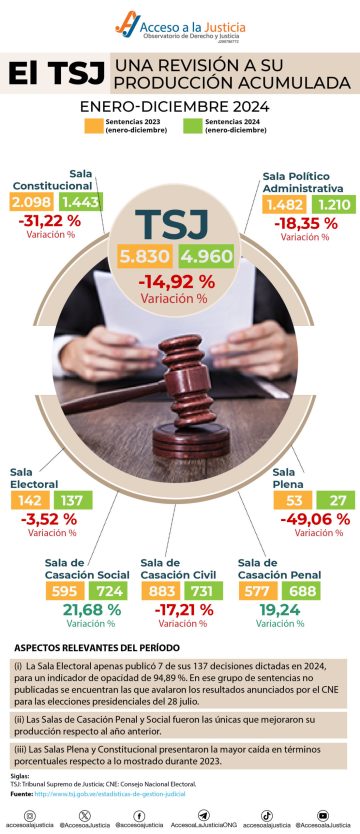Acceso a la Justicia presenta su reporte titulado “El rol del poder judicial venezolano en el marco de la corrupción y los derechos humanos”, en el que a través de una serie de preguntas responde a varios aspectos clave sobre este tema.
En una primera parte se ofrece un balance general en el que se exponen las condiciones por las que el Poder Judicial y demás integrantes del “sistema de justicia” no investigan ni persiguen la corrupción, cumpliendo más bien un papel de agentes del poder.
Los nombramientos de altos funcionarios del sistema de justicia durante los tiempos de la “revolución bolivariana” son explicados en detalle en el segundo capítulo, destacando la ausencia de transparencia, meritocracia y de participación ciudadana de estas designaciones, lo que conduce a un sistema de justicia penetrado y cooptado por el poder político desde 1999.
Esto se profundizó a partir del año 2005, ya que a finales de 2004 el poder político aumentó el número de magistrados del Tribunal Supremo de Justicia para tener un control más definitivo sobre el mismo, lo que ha sido clave para encubrir y evitar investigaciones asociadas a corrupción.
También ha sido importante en ese sentido para el régimen político venezolano, que ha gobernado desde 1999, tener control sobre la Fiscalía General. De hecho, se ha caracterizado por perseguir a quienes adversan al régimen en el poder y se ha pronunciado en materia de corrupción solo si ocurre un quiebre político con el funcionario investigado.
En el reporte, también se hace mención a la figura del antejuicio de mérito y su aplicabilidad a las autoridades del sistema de justicia; en particular, se analiza cómo ha reinado el silencio ante solicitudes dirigidas a su remoción presentadas por las organizaciones de la sociedad civil.
Asimismo, se llega a la conclusión que no existe protección frente a hostigamientos, estigmatizaciones y amenazas a la vida e integridad de los miembros del sistema de justicia por parte del poder político en caso de que tuvieren la iniciativa de investigar casos de gran corrupción. Es más serían castigados si lo hicieran.
Por último, se hace referencia a la negativa recurrente del máximo tribunal de dar acceso a la información pública frente a solicitudes de las ONG, reinando la opacidad y haciendo letra muerta el llamado “control ciudadano”.
Acceda al contenido del Informe haciendo clic aquí.
Access to Justice presents its report entitled “The role of the Venezuelan judiciary in the context of corruption and human rights”, in which, through a series of questions, it responds to several key aspects on this issue.
In the first part, a general balance is offered in which the conditions under which the Judiciary and other members of the “justice system” do not investigate or prosecute corruption, fulfilling the role of agents of power rather.
The appointments of high officials of the justice system during the times of the “Bolivarian revolution” are explained in detail in the second chapter, highlighting the absence of transparency, meritocracy, and citizen participation of these appointments, which leads to a justice system penetrated and co-opted by the political power since 1999. This deepened as of 2005 since at the end of 2004 the political power increased the number of magistrates of the Supreme Court of Justice to have a more definitive control over it, which has been key to cover up and avoid investigations associated with corruption. It has also been important in that sense for the Venezuelan political regime, which has ruled since 1999, to have control over the Attorney General’s Office. In fact, it has been characterized by persecuting those who oppose the regime in power and has spoken out on corruption only if a political breakdown occurs with the official under investigation.
In the report, mention is also made of the figure of the preliminary judgment of merit and its applicability to the authorities of the justice system; in particular, it is analyzed how silence has reigned in the face of requests for his removal presented by civil society organizations.
Likewise, it is concluded that there is no protection against harassment, stigmatization, and threats to the life and integrity of members of the justice system by the political power in the event that they have the initiative to investigate cases of grand corruption. What’s more, they would be punished if they did.
Finally, reference is made to the recurrent refusal of the highest court to give access to public information in the face of NGO requests, with opacity reigning and making the so-called “citizen control” a dead letter.


